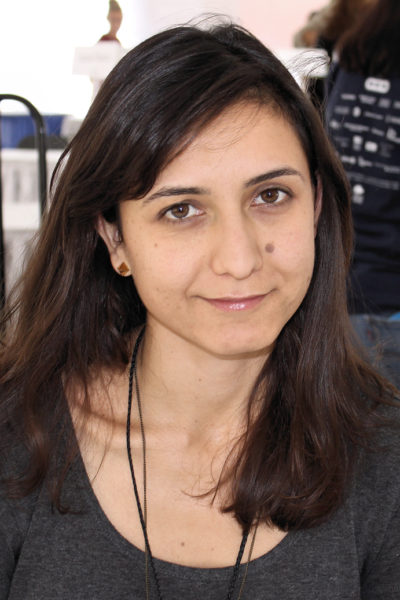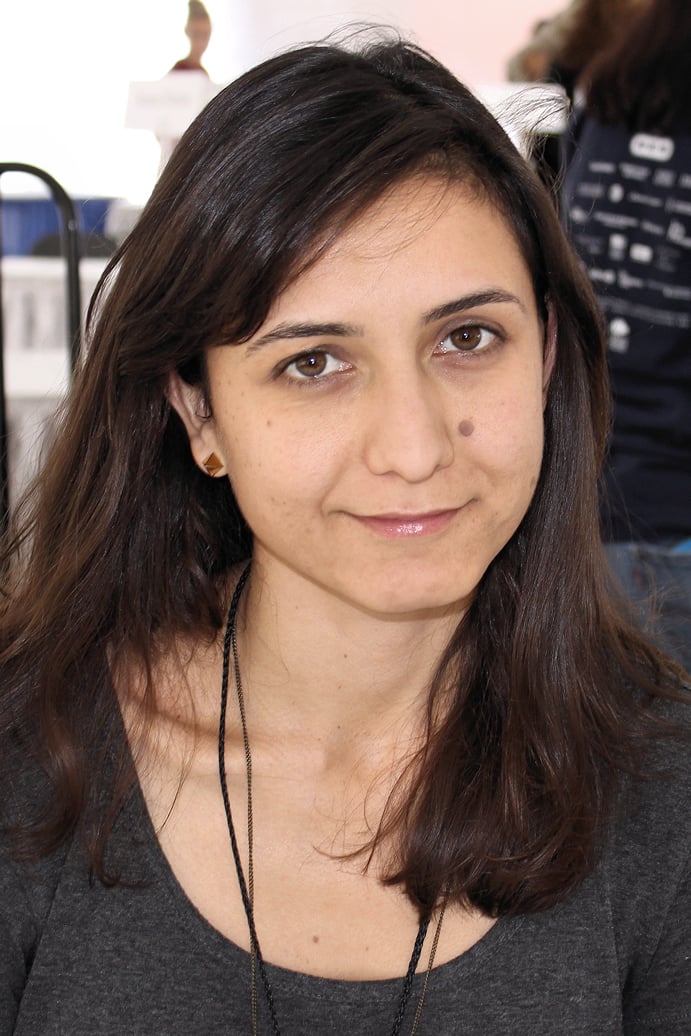
Ottessa Moshfegh is the queen of short stories. She is the goddess of the weird, the disgusting and the deformed. In “The Weirdos,” aptly named, a lethargic heroine and an overly-superstitious-paranoiac actor move in together. Both are completely self-absorbed and awful. The boyfriend is compulsive. “He had a theory about how to stay in shape. It was to tense your body vigorously during everyday activities. He walked around with buttocks clenched, arms rigid, neck and face turning red.” The girlfriend is judgmental. “His hamstrings were so tight he could barely bend at the waist. When he tried, he made a face like someone being penetrated from behind.” Moshfegh’s razor-sharp sentences convey this with pith. The matter-of-fact tone in which the story is narrated only makes the ridiculous world inhabited by the duo seem more absurd. Moshfegh’s reader is something like the girlfriend who hates her awkward twitchy boyfriend but loves her neighborhood. “I liked how ugly it all was, how trashy,” she says. After the initial cringe, we find something perversely irresistible in Moshfegh’s disturbed worlds. We like how ugly it all is, too.
In that regard, “Eileen” doesn’t fall far from the tree. The eponymous protagonist is another of Moshfegh’s female heroines. Eileen is angry, critical, but never empowered. She is the dark rendering of the woman left standing in the wake of post-feminism, empowered to defy gender constraints, talk vividly and at length about the ‘unlady-like’ act of bowel movements, but never empowered to act. Moshfegh’s heroines are always tired, thin and apathetic. At 24, Eileen still lives with her alcoholic father, works as a secretary at a boy’s juvenile prison, falls into neurotic spirals of insecurity and generally wallows in the recesses of her subterranean self-esteem. Her life is marked by a string of tragedies. Her mother and beloved dog died, sister moved away, all while she had to drop out of college to take care of her abuse-flinging-gun-waving dad.
“Eileen” is supposed to be a thriller. It’s meant to show how a girl that has only ever been a bystander to her own life escapes her miserable, ugly world. It’s meant to twist and shock like Moshfegh’s appetite for the forbidden. Instead, Ottessa Moshfegh, the former Stegner Fellow at Stanford University and winner of The Paris Review’s Plimpton Discovery Prize, seems to have taken what she’s best at, creating stories that pack punch across a mere few pages, stretched it, diluted it, all before slapping the word “Novel” onto its cover. The pace of Moshfegh’s beautiful prose decelerates when stretched across 250 pages, sorely missing the mark of the intensity that ought to be felt in a novel within this genre.
Moshfegh’s stories are bold, and if you’re reading one, you shouldn’t count on preserving your innocence as a reader. Child molestation, rape, murder and terrible hygiene somehow all feature in this book. However, somewhere around the middle of it, one starts to ask whether there is truly art in the disturbing method to her madness, or whether Moshfegh is merely running down a list of taboos to nestle in her pithy and pretty sentences. The same shtick of “the art of disgust,” and “[showing] the reader the same lack of compassion she shows her characters,” grows old by page 200, when there are 50 pages to the end, and nothing new has occurred.
All characters in the novel apart from Eileen are one-dimensional. Beyond the last page, crucial questions are left unanswered. After finally getting to the end, I was disappointed in my favorite short story-ist failing to export her prowess to a new medium. Nonetheless, “Eileen” was nominated for a Man Booker Prize. It won the 2016 PEN/Hemingway award for best debut fiction. But “Eileen” was not Ottessa Moshfegh’s best work.
Though I sincerely hope this author gives novels another go, I’m glad to see that post-“Eileen”, Moshfegh has returned to what she writes best, short stories. In 2017, she published an anthology of her best ones like “Bettering Myself” and “Disgust,” called “Homesick for Another World.” It’s also in the realm of 300 pages, but unlike with “Eileen,” you never feel it.
Contact Anna-Sofia Lesiv at alesiv ‘at’ stanford.edu.
